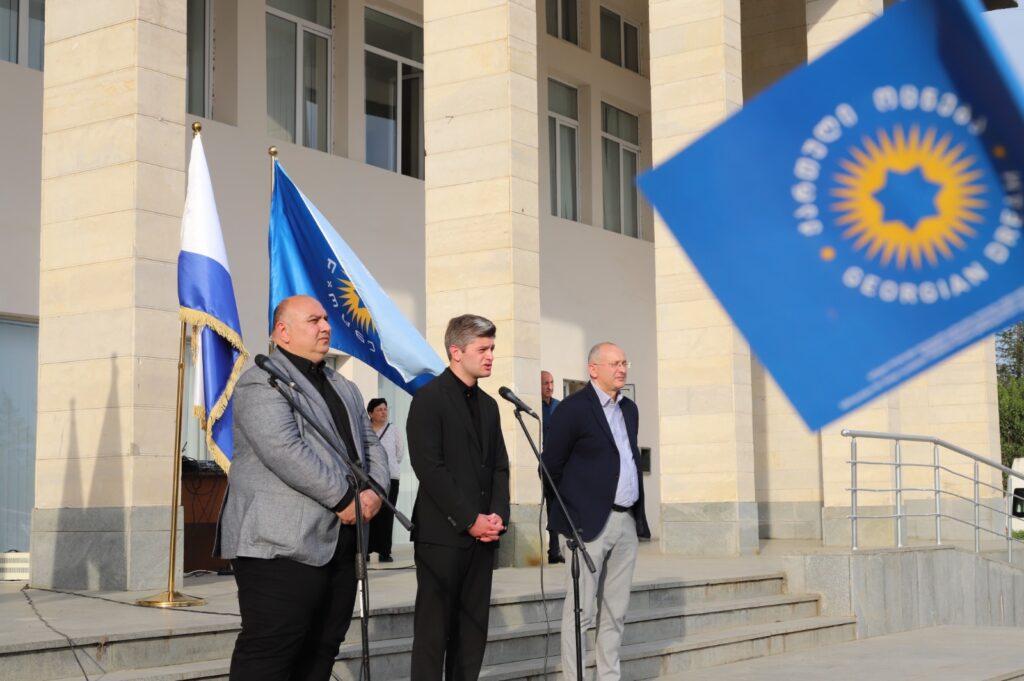The ruling Georgian Dream Party have won a by-election in the Poti, Senaki, and Khobi constituency after all but one minor opposition party failed to field candidates.
According to preliminary results, Georgian Dream’s Giorgi Khakhubia won 95% of the vote in Saturday’s parliamentary by-election. The only other candidate was from Free Georgia, a minor opposition party headed by former MP Kakha Kukava.
The election was called after the incumbent, Georgian Dream MP Irakli Khakhubia, passed away in October 2022.
Saturday’s vote also saw by-elections for councillors in the Gurjaani, Tianeti, Akhaltsikhe, Tkibuli, and Kutaisi city councils, as well as for the mayors of Tsageri and Terjola. Other than an independent candidate who ran unsuccessfully for the city council in Tkibuli Municipality, Georgian Dream candidates were elected entirely unopposed.
According to the Central Election Committee turnout was 30% across all the votes.
Georgian Dream chair Irakli Kobakhidze said in a briefing after the vote that the ruling party had ‘improved the results obtained in the 2021 municipal elections’.
Kobakhidze said the ‘radical opposition did not dare to put up a candidate in any constituency, which is proof that they are well aware of the high rating of the Georgian Dream and their own low rating’.
Major opposition parties explained their refusal to participate in the elections for several reasons.
The United National Movement (UNM) and Lelo expressed no confidence in the electoral system.
Giorgi Gakharia’s For Georgia party, meanwhile, said their priority was not elections but implementing the 12 recommendations given by the EU for Georgia to receive candidate status.
Others said they wanted to focus on preparing for the 2024 parliamentary elections.
Opinion polling has consistently shown that voters are unhappy with all of the options available to them. A March survey by IRI suggested that only 19% of Georgians would vote for Georgian Dream if an election were held the following weekend, down from 25% in September 2022. The opposition United National Movement (UNM) saw their support increase slightly from 12% to 14%, while 31% said they did not know who they would vote for or would spoil their ballot.
Electronic voting was used for the first time in the elections on Saturday. Voting was held at 117 polling stations using voter verification, voting and counting machines.
RFE/RL reported that some voters needed help casting their ballots, but that voter secrecy was maintained.
CEC spokesperson Natia Ioseliani said that there were some technical errors in several polling stations, but that they were quickly dealt with without interrupting the voting.
‘Voters have accepted electronic technologies very well and easily and are making their own choices’, she said.




 1 May 2023
1 May 2023



